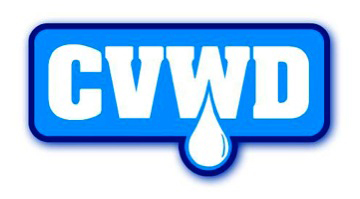Crescenta Valley Water District – CVWD – is well prepared to continue providing water and wastewater services throughout the COVID-19 pandemic. The District has staff, equipment and infrastructure in place to maintain all services around the clock, while incorporating remote working and social distancing to protect the health and well-being of our employees, customers, and the community.
CVWD’s board of directors recently took measures to assist the community: It postponed rate increase discussions for a July 1 rate increase, committed to suspended water shutoffs for non-payment through the end of July and committed to suspending late fees through the end of July.
There will be further discussion by board and staff on additional ways for the District to assist customers experiencing financial and other hardships during this time. Any new programs will be listed on its website at www.cvwd.com.
The District remains deeply committed to the safety of its customers, employees and the community, and is still here to make sure customers have water. During this time, customers will need to do business online or by phone or email.
CVWD customers can make payments using the following methods: Pay online at www.cvwd.com; pay via phone – (818) 248-3925; mail payment; use the dropbox to the right of the office door.
Board meetings are held on the second and fourth Tuesday of each month. Interesting discussions are ongoing in regard to bond financing, the budget and customer programs. It’s a great time to tune in from home and see what is going on! Instructions on how to call in or use Zoom teleconferencing are on the website at www.cvwd.com.
What can customers do to help?
Don’t stockpile water. While having an emergency supply of water is always a good idea, local tap water is safe to drink. California’s comprehensive and safe drinking water standards require a multistep treatment process that includes filtration and disinfection. This process removes and kills viruses, including coronaviruses such as COVID-19, as well as bacteria and other pathogens.
The State Water Board’s Division of Drinking Water establishes and enforces drinking water standards that ensure the delivery of pure, safe and potable water. In addition to health-based water quality standards, treatment facilities must comply with stringent performance measures to ensure treatment processes are continuously operating at peak performance.
The treatment process must destroy at least 99.99% of viruses. The limited number that might pass through the removal process is quickly inactivated in the disinfection process, typically in less than 10 minutes. All treatment facilities for surface water sources in California are required to maintain disinfection facilities sufficient to destroy giardia cysts, which are much more resilient than viruses.
COVID-19 is transmitted person to person, not through water, according to the Centers for Disease Control and Prevention. Public water systems that utilize groundwater sources maintain protective physical measures, including soil barriers, to ensure that water sources are protected from pathogens, including viruses. In addition, most of these systems use chlorine disinfection to inactivate viruses or bacteria that might find their way into the water.
Don’t flush wipes down the toilet. While the State Water Board and other public agencies encourage Californians to follow the Centers for Disease Control recommendations to clean surfaces with disinfecting wipes to reduce the spread of COVID-19, it is important to discard those items in the trash, not the toilet.
Flushing wipes, paper towels and similar products down toilets will clog sewers and cause backups and overflows in your home and at wastewater treatment facilities. This can cause costly repairs for homeowners and create an additional public health risk amid the coronavirus pandemic. Even wipes labeled “flushable” will clog pipes and interfere with sewage collection and treatment throughout the state. Wipes are among the leading causes of sewer system backups, impacting sewer system and treatment plant pumps and treatment systems. Many spills go to lakes, rivers and oceans where they have broad ranging impacts on public health and the environment. Preventing sewer spills is important, especially during this COVID-19 emergency, for the protection of public health and the environment.
Please do not flush disinfectant wipes or paper towels down the toilet.

